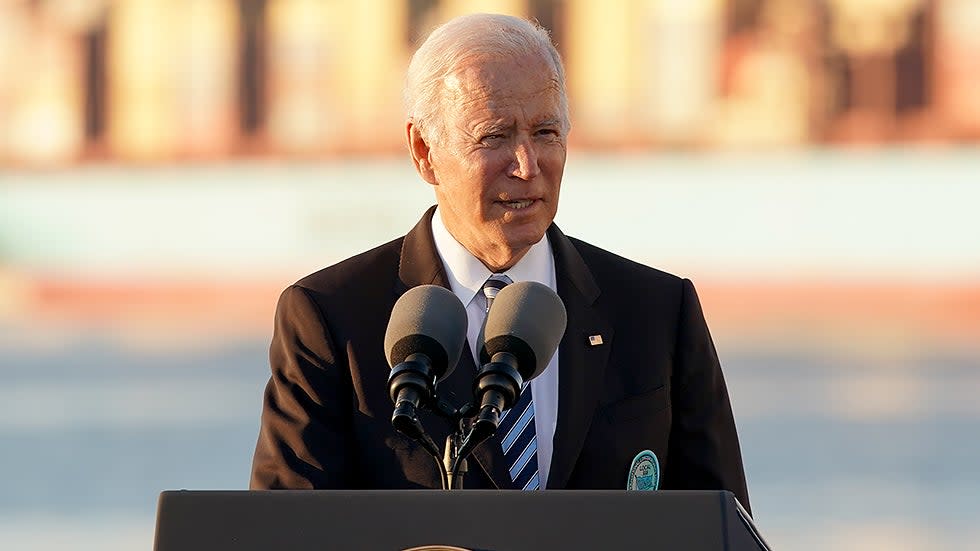Biden unveils updated strategy to end HIV epidemic by 2030

- Oops!Something went wrong.Please try again later.
President Biden will unveil an updated strategy that aims to end the HIV epidemic in the United States in the next decade when he marks World AIDS Day on Wednesday at the White House.
The updated strategy, laid out in a 98-page document released by the Biden administration on Wednesday, provides a roadmap for the federal government through 2025 to reduce HIV infections, improve treatment, lessen health care inequities and combat discrimination and stigmas.
Biden pledged during his presidential campaign to release an updated version of the strategy, the first version of which was conceived under the Obama administration in 2010, when Biden was vice president.
"President Biden is honoring that commitment," a senior administration official told reporters, adding that the strategy provides "a framework and a direction for the administration's policies, research, programs and planning through the year 2025 to lead us toward ending the HIV epidemic in the United States by 2030."
Roughly 1.2 million people in the U.S. are living with HIV. Officials say the number of new HIV infections in the U.S. declined from 36,200 in 2018 to 34,800 in 2019. The administration's goal is to get the number of new infections down to 3,000 in the year 2030. Certain populations are disproportionately impacted by HIV, including Black and Latino communities and gay and bisexual men.
The new strategy is guided by four goals: preventing new HIV infections, improving health outcomes for those with HIV, addressing disparities in access to health care and treatment for those at risk for HIV and better coordinating and integrating the national response to HIV, including public and private organizations.
The senior administration official said the Biden administration had made "several updates" to the strategy, pointing to the document's recognition of racism as a "serious public health threat" and new focus on HIV among aging populations, harm reduction services and quality of life.
The strategy also calls for states to "repeal or update" HIV criminalization laws, but it does not go into greater detail about how the federal government will convince states to do so. According to the Centers for Disease Control and Prevention, 35 states have laws that criminalize HIV exposure.
The strategy envisions a whole-of-government response to combat HIV/AIDS that also involves private sector organizations and nongovernmental organizations. The senior administration official said that federal departments involved in the response efforts will submit initial plans beginning early next year.
Biden is scheduled to announce the updated strategy Wednesday afternoon during an event in the East Room of the White House, where he will be joined by Health and Human Services Secretary Xavier Becerra, who will also deliver remarks.
In addition to announcing his administration's strategy to combat HIV/AIDS, Biden will also affirm plans to host the Global Fund to Fight AIDS, Tuberculosis, and Malaria Replenishment Conference in the U.S. next year.
The senior administration official said that the president will be introduced by a California advocate living with HIV.

